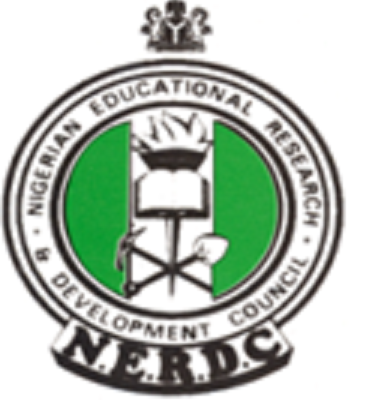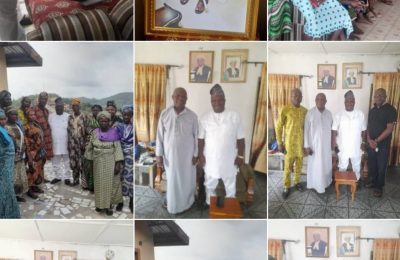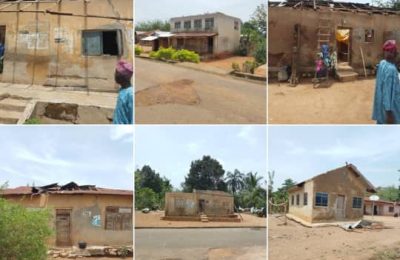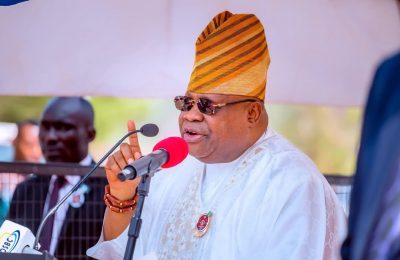
CLEMENT IDOKO, writes on the new skilled-based education curriculum recently unveiled by the Federation Government concluding that strict monitoring and evaluation of the implementation process as well as funding remain key to achieve the desired goal.
The quest for Nigeria to have a new basic curriculum that integrates 21st-century skills and technology, came alive on Thursday, October 10, when the 68th National Council on Education (NCE), approved the new curriculum for implementation in primary and junior secondary schools across the country.

The revised curriculum by the Nigerian Educational Research and Development Council (NERDC), has 15 trades or skills that schoolchildren from Basic three to Junior Secondary three would be taught while every student would mandatorily graduate with one or two skills.
The mandatory implementation of the new curriculum for basic education will commence in January 2025 in both private and public schools across the country.
Experts have commended the Federal Government for taking a bold step to revolutionalise basic education in Nigeria but insisted that government should ensure effective implementation, monitoring and evaluation of the entire process.
The acting executive secretary of NERDC, Dr Margaret Lawan, while giving insight into the new curriculum said it has 15 different trades or skills which were newly introduced for basic education.
She listed the subjects to include Basic Digital Literacy, comprising Information Technology (IT), Robotics, and others, while Building and Construction has subjects like Plumbing, Tiling, Floor Works, and POP Installation.
For hospitality and leisure, the subjects include Events Decoration and Management, Bakery and Confectionery, Hair Styling, Make- up, and Interior Design, even as Services consisted of the following subjects: GSM Repairs, Satellite/TV Antenna/CCTV/Intercom Installation and Maintenance, Solar Installation and Maintenance and Garment Making.
There is also Agriculture and Processing, which consists of Crop Production, Bee-keeping, Horticulture Production, Sheep and Goat Farming, Poultry, and Rabbit Farming.
One of the concerns raised by stakeholders’ overtime have been that the Nigerian education curriculum is outdated and lack the content address the skills gap in the country.
This prompted a renewed push for curriculum reform aimed at fostering national development and global competitiveness. In this regard, efforts have been made to align the curriculum with the needs of a rapidly evolving society, emphasising critical thinking, innovation, and entrepreneurship.
Former Minister of Education, Professor Tahir Mamman, highlighted this imperative at the Nigerian Educational Research and Development Council (NERDC) organised stakeholders’ dialogue and high-level policy committee meeting for the review of basic education curriculum in Abuja.
He lamented what he referred to as learning crisis at basic level of education, where children who are in schools are not actually learning and lack fundamental literacy.
He noted that the revised curriculum for the basic education will substantially address the current learning crisis in the country as well as encourage the use of technology.
After the approval of the curriculum by the NCE, Professor Mamman also held a stakeholders’ meeting with relevant heads of agencies and other stakeholders on the need to work out modalities for the smooth take-off of the new curriculum in January 2025.
Mamman noted that the revised curriculum infused with skills and technology will provide Nigerian students with a well-rounded education that prepares them for the challenges of the 21st century.
He also noted when the new curriculum is fully implemented; the worrisome issue of out-of-school children syndrome would have been addressed because the children who could not further their education would have been equipped with skills.
He said the government will collaborate with all stakeholders to ensure effective delivery of the new curriculum and fine-tune it within the next three months before its implementation in January 2025.
He revealed that the curriculum was recently approved with set timeline for the implementation alongside National Skills Framework by the National Council on Education (NCE).
He added that the new curriculum was developed for teaching of pupils from Basic three to Junior Secondary School component of education.
Mamman also disclosed that progress had being made on the development of new Senior Secondary Education Curriculum and that it will be ready for implementation in September 2025.
He expressed the commitment of the government to support the implementation process, monitoring, and evaluation of the new basic education curriculum.
He added that this includes training of teachers, development of teachers’ guide and infrastructure among others.
He disclosed that the curriculum was designed to equip children in Nigeria with 21st century skills not only to enable them become self-reliant but for them be employers of labour and contribute meaningful to the development of the country.
He noted that the old curriculum which had been in operation since 2012 had become outdated, emphasising that the new curriculum when implemented will make graduates from schools in Nigeria to be globally competitive.
The newly-designed curriculum according to the Minister of Education, apart from emphasising a technology-driven education and skills, takes into account the diversity of the country.
Mamman noted that schools in different regions of the country are free to propose occupational trades or skills they want to be integrated in the curriculum.
Professor Mabel Evwierhoma of the Department of Theatre Arts, University of Abuja, called on the Federal Government to ensure effective implementation of the new curriculum, saying it was important for students to have skill set because just basing learning experience on knowledge would not suffice.
According to her, the country needs a knowledge-based economy where skills are needed to apply knowledge of whatever they have been taught within the classroom space.
Evwierhoma noted the curriculum if well implemented would address the challenge of unemployment in the country, noting that the skills and entrepreneurship acquired could generate income and make earning a living to be effortless.
Also, speaking on the new curriculum, Professor Bennett Uzoechi, Faculty of Education, Nasarawa State University, Keffi, told Nigerian Tribune in an interview that he was part of the process of developing the curriculum working in the area of science and technology.
He commended the Federal Government for the development of the new skilled-based curriculum, saying so many competencies and 21st century skills were incorporated into the curriculum just unveiled.
“Education is not only cognitive; you have to also engage the affective component, the psychomotor aspect too must be fully involved. Now, there is an incorporation of skills, both the hard and soft skills. These are things (skills) the children can do with their hands, even to generate money.
“The initial conception of the basic curriculum for basic education and junior secondary was that if children cannot proceed to senior secondary, they can now be enhanced with trades to engage themselves for life. These skills now are being emphasised and the children should have them.
“If they cannot proceed academically, they can still fend for themselves. There will be no need to look for white-collar jobs. That’s the beauty of the new curriculum that is being introduced. It has all the skills built into it,” he stated.
Director of Curriculum at NERDC, Dr Garba Gandu, said the new curriculum was developed in line with the current realities.
“It is a harvest of a lot of experiences gathered from different countries. It competency and outcome-based. It aligns with the Science, Technology, Engineering, Arts, and Mathematics (STEAM) initiative.
“The disruptive technology aspect of it, in terms of digital literacy, has been captured greatly.
“It has been well-captured in terms of digital literacy, which means that our children are part and parcel of it. The interesting part of it also is that it remains the most democratised curriculum that has occurred in Nigeria because it addresses different contexts and stakeholders. It’s a unified representation of the needs that Nigerians are looking out for. I believe this will go a long way in turning around the basic education sub sector in Nigeria,” Dr Gandu.
Stakeholders, have however, tasked the federal and other levels of government to ensure commitment to funding, especially in the provision of infrastructure like laboratories, workshops and other equipment needed for the training of students in various skills set.
Read Also: FEC approves €443.3m, $141m credit facilities for fighter jets, ammunition







